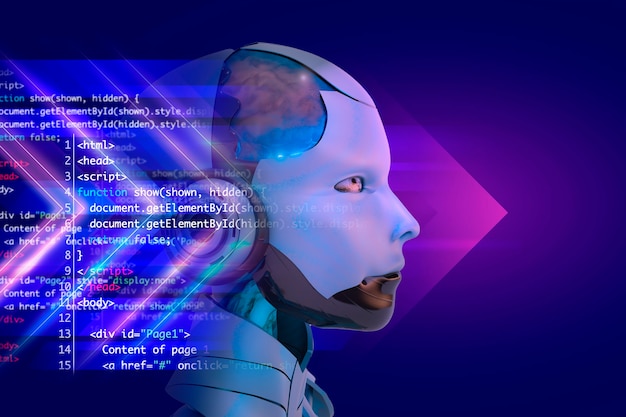
ChatGPT and its capabilities
ChatGPT is an AI language model developed by OpenAI that is capable of generating human-like text. It uses deep learning algorithms to analyze vast amounts of text data and learns to generate coherent and natural-sounding language in response to prompts given by users. The AI chatbot is capable of completing a wide range of language-related tasks, including language translation, text summarization, question answering, content generation, and sentiment analysis. Its capabilities have the potential to revolutionize the way people interact with language and can be utilized in a wide range of industries, including marketing, healthcare, and education, among others.
Importance of ChatGPT in marketing:
ChatGPT has significant importance in marketing for several reasons:
- Content Creation: the chatbot can be used to generate high-quality content in a matter of seconds, saving time and resources for marketers. This can include product descriptions, blog posts, social media updates, and more.
- Customer Engagement: the AI chat assistant can be integrated with conversational interfaces such as chatbots or voice assistants to provide customers with personalized and interactive experiences, which can help build brand loyalty and increase engagement.
- Personalization: the NLP model can be used to personalize the customer experience by incorporating customer data and generating custom recommendations or messages, which can improve the effectiveness of marketing campaigns.
- Market Research: ChatGPT can be used to analyze customer feedback and sentiment to identify trends and insights, which can help inform marketing strategies and improve the overall customer experience.
- Efficiency: it can automate several time-consuming tasks, freeing up marketers’ time and resources for other high-value tasks that require human input and creativity.
Benefits of using ChatGPT for customer engagement
Using ChatGPT for customer engagement can have several benefits for businesses. Here are some of the key advantages:
- 24/7 Availability: the AI assistant can provide 24/7 customer support through chatbots, which can handle routine queries, provide basic information, and answer frequently asked questions. This means that customers can receive support at any time, even outside of business hours.
- Faster Response Times: the chatbot can respond to customer queries in real-time, which means that customers receive faster responses than traditional customer support channels, such as email or phone.
- Cost-Effective: the language model can reduce the cost of customer support by automating routine tasks, freeing up human agents to handle more complex queries. This can result in cost savings for businesses, as they can employ fewer human agents to handle customer support.
- Scalability: the conversational model can handle a large volume of customer queries simultaneously, making it scalable for businesses of all sizes. This means that businesses can handle high volumes of customer queries during busy periods without needing to hire additional staff.
- Personalization: the text generation model can personalize customer interactions by analyzing customer data and tailoring responses accordingly. This can help to improve the customer experience and build stronger relationships with customers.
- Data Collection: the AI chatbot can collect data on customer interactions, which can be used to gain insights into customer behavior, preferences, and pain points. This data can inform marketing strategies, product development, and customer service improvements.
Generating content:
ChatGPT can generate content such as product descriptions, blog posts, and social media updates by analyzing vast amounts of text data and using deep learning algorithms to understand language patterns and structures. Marketers can input prompts into the AI text generator, such as a product name or topic, and the model will generate coherent and natural-sounding language in response. Here are some examples:
- Product Descriptions: Marketers can input product features and specifications into the NLP model, and it can generate product descriptions in various styles and tones that fit the brand’s voice.
- Blog Posts: Marketers can input a topic or keyword into AI assistant, and it can generate blog post outlines, headlines, and full articles. Marketers can then edit and modify the generated content to suit their brand’s voice and style.
- Social Media Updates: Marketers can input a prompt, such as a holiday or event, and the text completion tool can generate social media updates for various platforms in different tones, styles, and formats.
Future potential of ChatGPT in marketing
The future potential of ChatGPT in marketing is vast and exciting. Here are a few potential ways in which it could transform marketing:
- Hyper-Personalization: AI chatbot’s natural language processing capabilities could enable hyper-personalization in marketing. Marketers could input customer data into the AI platform, which could then generate personalized product recommendations, marketing messages, and even chatbot conversations that feel more human-like.
- Real-Time Analytics: the language model could be integrated with real-time analytics platforms to monitor and analyze customer conversations and feedback. This could help marketers understand customer sentiment in real-time and adjust their marketing strategies accordingly.
- Multilingual Capabilities: the text prediction model can currently translate text into multiple languages. As the model continues to improve, it could become a valuable tool for global marketing efforts by generating content and messaging in multiple languages.
- Augmented Reality: the language AI platform could be integrated with augmented reality technologies to create immersive and interactive marketing experiences for customers. For example, it could generate text or voice descriptions of products when a customer points their smartphone camera at them.
- Social Media Listening: the chatbot could be used to analyze and make sense of social media conversations. It could help marketers understand customer behavior, preferences, and interests on social media, which could help inform marketing campaigns and strategies.
Overall, ChatGPT has the potential to transform marketing by enabling hyper-personalization, real-time analytics, multilingual capabilities, augmented reality, and social media listening. As the technology continues to improve, the possibilities for its use in marketing will only expand.




Leave a Comment